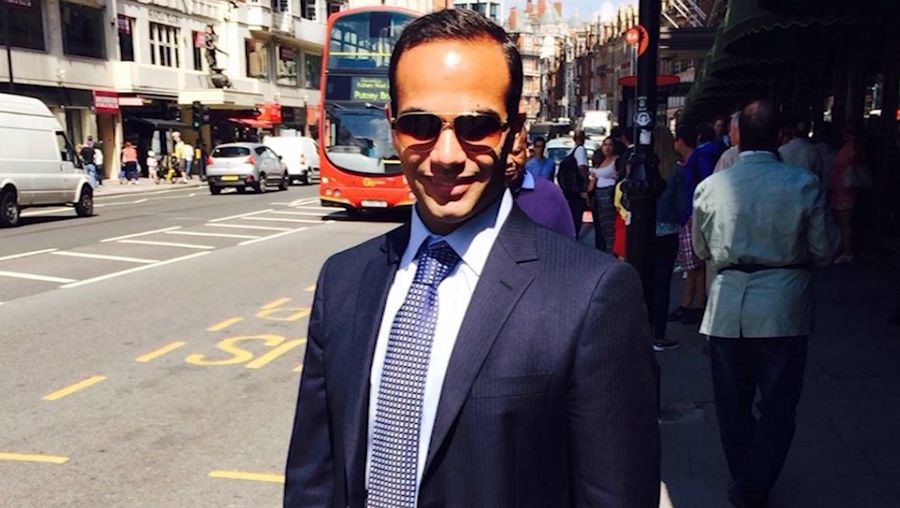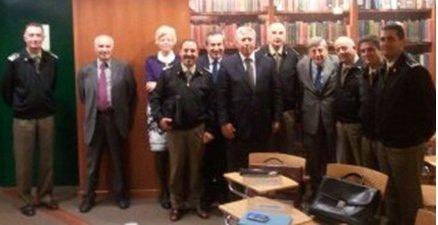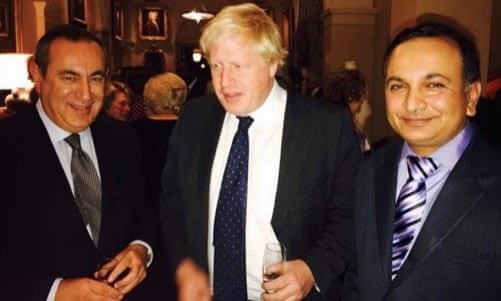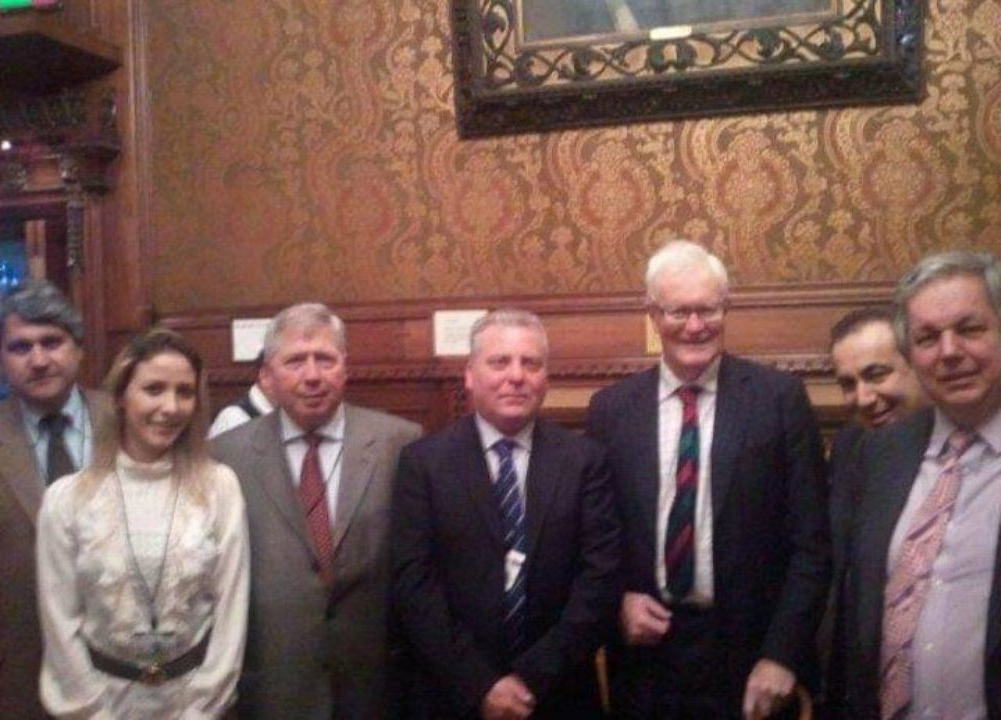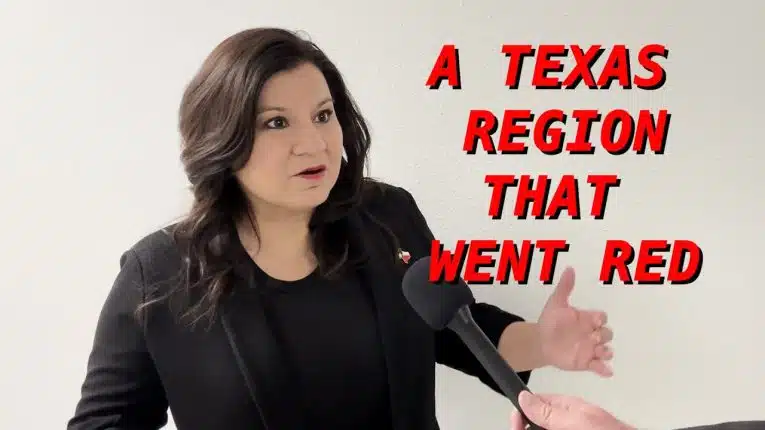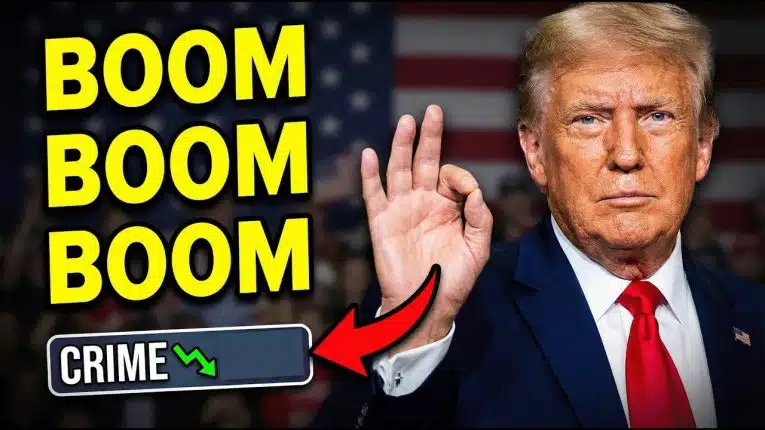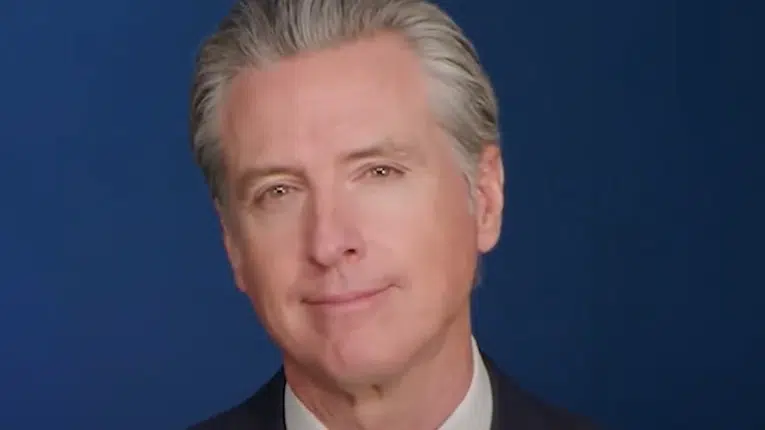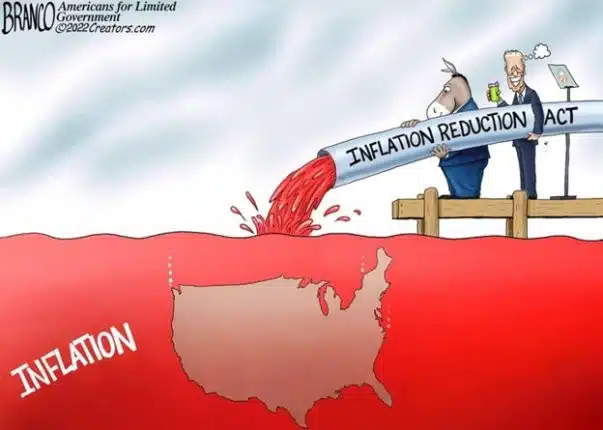Maybe there was foreign interference in the 2016 U.S. elections — by the United Kingdom and Western intelligence agencies.
That is what George Papadopoulos has been saying as he is now serving out a 14-day prison sentence for forgetting or lying about what his start date was with the Trump campaign in 2016 when he spoke to federal investigators about his 2016 meetings he had with Maltese professor Joseph Mifsud and supposed Russian officials.
And, Papadopoulos declares, declassifying the Foreign Intelligence Surveillance Act (FISA) court papers will prove it.
In his final tweet before heading to prison, Papadopoulos on Nov. 26 posted on Twitter, “Still can’t believe the day I am going to a federal prison camp, mainstream media says am going for my Russia contacts. I have never met a single Russian official in my life. I have, however, met many western intel sources — Joseph Mifsud — who people still call ‘Russian.’ Facts. USA…”
Here, Papadopoulos is alleging that Mifsud — and everyone who he introduced Papadopoulos to — were not Russian officials at all, but what he now calls “decoys” that were orchestrated by Western intelligence agencies.
According to the statement of offense by Special Counsel Robert Mueller, in March 2016 and while in Italy, Papadopoulos met an overseas professor, who turned out to be Mifsud, based in London who “claimed to have substantial connections with Russian government officials.” Eventually he was introduced to a female Russian national who Papadopoulos was introduced as Vladimir Putin’s niece — she wasn’t — with the purpose being to set up an eventual meeting between the Trump campaign and the Russian government.
On April 26, Papadopoulos was teased by the professor that, according to the special counsel, “the Russians had obtained ‘dirt’ on then-candidate Clinton. The Professor told defendant Papadopoulos, as defendant Papadopoulos later described to the FBI, that ‘They [the Russians] have dirt on her’; ‘the Russians had emails of Clinton’; ‘they have thousands of emails.’”
Papadopoulos has claimed at the time he thought the emails were not DNC or John Podesta emails that eventually appeared on Wikileaks, but were from Hillary Clinton’s private server that contained classified information, something that had been publicly reported at the time. That is, that it was possible Russia had hacked the Clinton server. No emails were ever delivered to Papadopoulos.
As for the contacts, Papadopoulos now contends that they were not Russian agents at all, but Western intelligence operatives whose job it was to set up and sabotage the Trump campaign.
Papadopoulos says he believes the meetings were all coordinated by his former job at the London Centre for International Law Practice (LCILP). In a Nov. 2 tweet to anti-Trump author Seth Abramson in a thread that has since been deleted, Papadopoulos challenged Abramson to look into “why did A[r]vinder Sambei and [LCILP Director] Nagi Idris recommend I meet Mifsud (she is the FBI’s consul in London) and works at LCILP.”
On Oct. 14, Papadopoulos tweeted this photo of Mifsud with British MP Claire Smith, writing, “Here is ‘Russian agent’ Joseph Mifsud with Claire Smith, senior level member of the UK intelligence committee. She helped oversee Britain’s spy operations. Your government must be incompetent to allow a ‘Russian agent’ so close to your senior intel officials.”
On Oct. 14, Papadopoulos tweeted another photo of Mifsud appearing with former British Foreign Minister Boris Johnson, writing, “Another example of UK incompetence or complicity? Here is Joseph Mifsud a year after I notified the FBI that he was a ‘suspected Russian agent’ with none other than the British Foreign Minister, Boris Johnson. Strange that a ‘Russian agent’ gets such access to the top in the UK.”
On Oct. 17, Papadopoulos tweeted this picture of Mifsud again at the UK Parliament, writing, “To simplify: In this picture is the man, Joseph Mifsud, (the ‘professor’) who allegedly was a ‘Russian agent’ who had information from Russia that the ‘Russians had Clinton’s emails’. Overwhelming evidence now shows he was a ‘BRITISH’ agent. Here at British parliament. Scandal.”
If true — if the UK and other Western intelligence agencies were using their own agents against the Trump campaign in 2016 in a sting operation to ferret out Russian collusion without actually finding it — it would call into question why Special Counsel Mueller bothered prosecuting Papadopoulos at all using Mifsud as the key witness.
Perhaps the goal was to squeeze Papadopoulos, but now that he’s talking, in hindsight, hasn’t it risked exposing the entire operation?
If anything, it should have been a simple matter for the FBI to either corroborate or refute the allegation that Papadopoulos was in contact with real Russian officials. But in Mueller’s own filings, he never actually says that Papadopoulos’ contacts were actual Russian intelligence operatives. There were tons of qualifiers used.
Mifsud, per the special counsel, “claimed to have substantial connections with Russian government officials.” On Putin’s “niece,” Papadopoulos “believed that she had connections to Russian government officials…” Or, Papadopoulos was introduced to “an individual in Moscow … who told defendant Papadopoulos he had connections to the Russian Ministry of Foreign Affairs.”
Nowhere does the statement of offense by Mueller confirm these contacts actually had the Russian connections they were purporting. Wasn’t that an important set of facts to at least confirm before threatening Papadopoulos with prosecution and coercing him into a plea deal?
So, who set up the meetings?
It was either the Russians, or it was someone else.
Finally, if Papadopoulos was never in contact with real Russian intelligence operatives — and Mueller knew that — what was Mueller hoping he’d testify to?
Not for colluding with Russia, certainly. Now, none of that touches on the question of Russia hacking the DNC or John Podesta emails and putting them onto Wikileaks. But it does go to the question of potential collusion by the Trump campaign, and whether Western intelligence agencies were conducting a sting of the Trump campaign to probe for potential involvement.
Papadopoulos also alleged that former FBI Director James Comey knows the answers to these questions, writing on Nov. 22, “It is imperative congress has Comey testify under oath next week about: how the British and Australian intel agencies were weaponized against Trump and his associates; when and who else had FISAs on them, and for which countries. Get him to admit Joseph Mifsud’s real role.”
And Papadopoulos remains confident that FISA declassification by President Donald Trump will clear his name. On Nov. 25, he tweeted, “FISA declassification will exonerate us all.”
On Nov. 7 at his post-midterm press conference, Trump said of declassifying the documents used to obtain FISA warrants against Trump campaign advisor Carter Page, “We’re looking at that very seriously. Declassification? We’re looking at that very seriously.”
Both the UK including the Mi6 spy agency and Australia are reported as being strongly opposed to declassification, citing the risk of exposing sources. What are they hiding?
Maybe the real foreign spying scandal in U.S. elections is with the UK and Western intelligence agencies, as Papadopoulos alleges. Declassification could hold some of the answers we all seek. The American people have a right to know the truth, even if it’s a terrible truth. Let it all out there and let’s get on with the hard work of repairing foreign relations in the aftermath of this fiasco — before something even worse happens.
Robert Romano is the Vice President of Public Policy at Americans for Limited Government.


